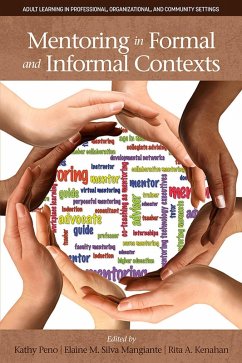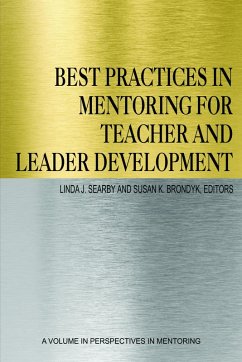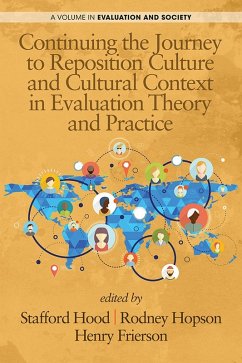Although cultural issues have a powerful influence on the failure and success of mentoring programs and relationships, there is scant research on this area and little in the way of guidelines that practitioners can use to help assure mentoring success. This book seeks to expand our knowledge and understanding of this topic and to foster the use of this information to enhance practice and research.The book is unique in a number of ways and will be an important resource for all those engaged in mentoring endeavors and for those conducting research in this area. First, it presents research findings on the cultural impact of mentoring at the individual relational level, at the organizational level, and within the structures of the society. Secondly, the chapters describe mentoring from an international perspective including programs from Africa, Australia, Canada, Finland, India, Ireland, Korea, Scotland, Sweden and the United States. Third, the book is research based and yet, can be easily applied to practice. Chapters provide information on lessons learned and also include reflective questions to enable the reader to delve more deeply into the constructs and findings in order to apply them to their own practice and research. This makes the book an ideal resource for training mentors and mentees, for designing mentoring programs, for teaching about mentoring, and for establishing and maintaining mentoring relationships. It also will be of value to those who are engaged in conducting research on how to create and maintain successful mentoring relationships and programs.EndorsementsAll mentoring relationships are diverse. Indeed, it is the difference between mentor and mentee that creates the potential for co-learning. Mentoring that bridges cultural gaps opens the way to an exchange of understanding about both internal and external assumptions and perspectives (how each of us thinks and how the world functions for each of us). In this book, the editors and contributors demonstrate the diversity of diversity, with particular focus on education in different societies. I recommend it as essential background reading for anyone designing mentoring programmes, in which cultural diversity will be a significant dynamic. Dr David Clutterbuck, Special Ambassador, European Mentoring and Coaching CouncilIn this boundary-spanning volume, the authors pull back the curtain on the latest evolution of mentoring theory and practice revealing that all mentoring relationships are intrinsically cultural. Not only that, the researchers present creative, empirically sound ideas for mentoring at different scales-personal encounters, networked communities, and loose collectives. This book is robustly inclusive of structural layers of mentoring differentiated by context-whether higher education, schools, or collegial communities-making meaning of cultural diversity as part of one's inner core of relational and systematic mentoring. Practitioners of mentoring and researchers of mentoring alike should find this work important for understanding the breadth and depth of mentoring in different cultural contexts while allowing its essence to remain unfolding, rather than simply told. All mentoring professionals can gain insight and value from the diversity of theoretical orientations that capture as well as map the impact of global and cultural influences of mentoring in everyday worlds. A must read for all who care about the quality of educational relationships and about making a difference in learning settings. ~ Dr. Carol A. Mullen, Professor of Educational Leadership, Virginia Tech, University Council for Educational Administration (UCEA) Plenary Session Representative (PSR)
Dieser Download kann aus rechtlichen Gründen nur mit Rechnungsadresse in A, B, BG, CY, CZ, D, DK, EW, E, FIN, F, GR, HR, H, IRL, I, LT, L, LR, M, NL, PL, P, R, S, SLO, SK ausgeliefert werden.









